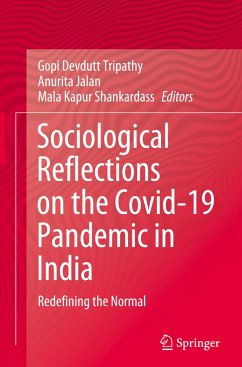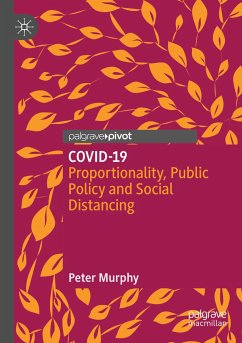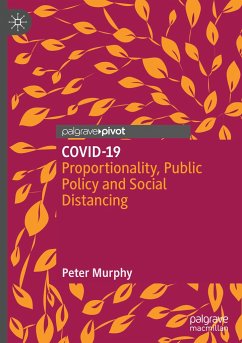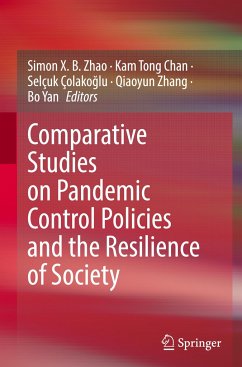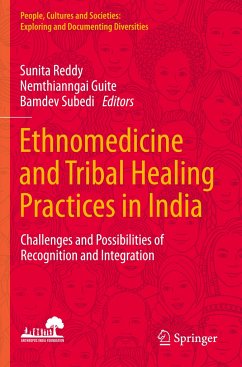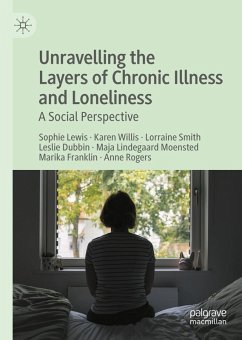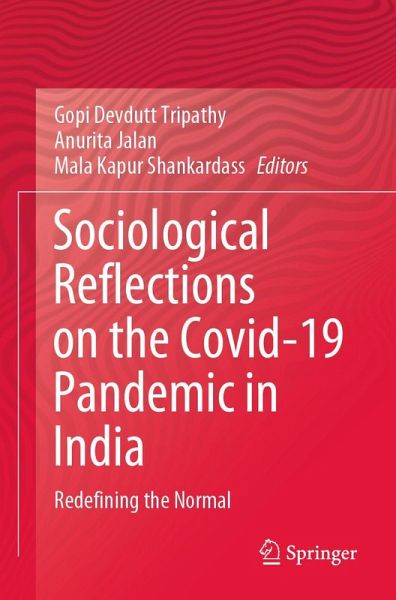
Sociological Reflections on the Covid-19 Pandemic in India
Redefining the Normal
Herausgegeben: Tripathy, Gopi Devdutt; Jalan, Anurita; Shankardass, Mala Kapur
Versandkostenfrei!
Versandfertig in 6-10 Tagen
91,99 €
inkl. MwSt.

PAYBACK Punkte
46 °P sammeln!
This book presents a sociological study of the COVID-19 pandemic in the context of India. It invites readers to understand disasters and crises as triggers of radical transformations in society, changing the very nature of every day and the meaning of normal. It discusses the processes through which society accepts, internalizes and reinvents a new way of life. It provides insights into its impact on the individual, family, economy and the state and the relationships not only between them but also within them. The chapters draw attention to the concerns of the vulnerable sections of the popula...
This book presents a sociological study of the COVID-19 pandemic in the context of India. It invites readers to understand disasters and crises as triggers of radical transformations in society, changing the very nature of every day and the meaning of normal. It discusses the processes through which society accepts, internalizes and reinvents a new way of life. It provides insights into its impact on the individual, family, economy and the state and the relationships not only between them but also within them. The chapters draw attention to the concerns of the vulnerable sections of the population - the aged, children, women, the disabled, migrant labour and the economically backward classes. The chapters are written in an engaging style, and each chapter investigates the way societies think about the risk, threat and harm and the ways to navigate crises of all kinds. As such, the book provides a key read for academics, students and administrators, as well as general readers confronted by an existential crisis caused by the pandemic.



